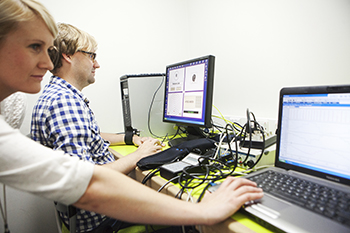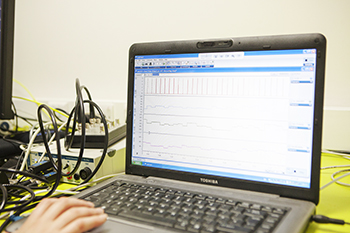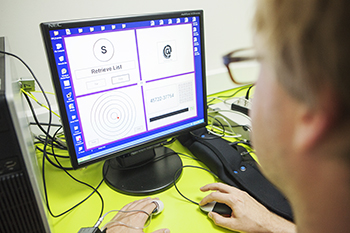-
Study
-
Quick Links
- Open Days & Events
- Unlock Your Potential
- Tuition Fees, Funding & Scholarships
- Open Day 25th October
-
Undergraduate
- Application Guides
- UCAS Exhibitions
- Extended Degrees
- School & College Outreach
- Information for Parents
-
Postgraduate
- Application Guide
- Postgraduate Research Degrees
- Flexible Learning
- Change Direction
- Register your Interest
-
Student Life
- Students' Union
- The Hub - Student Blog
- Accommodation
- Northumbria Sport
- Support for Students
-
Learning Experience
- Real-World Learning
- Research-enriched learning
- Graduate Futures
- The Business Clinic
- Study Abroad
-
-
International
International
Northumbria’s global footprint touches every continent across the world, through our global partnerships across 17 institutions in 10 countries, to our 277,000 strong alumni community and 150 recruitment partners – we prepare our students for the challenges of tomorrow. Discover more about how to join Northumbria’s global family or our partnerships.
View our Global Footprint-
Quick Links
- Course Search
- Undergraduate Study
- Postgraduate Study
- Information for Parents
- London Campus
- Northumbria Pathway
- Cost of Living
- Sign up for Information
-
International Students
- Information for International Students
- International Events
- Application Guide
- Entry Requirements and Education Country Agents
- Global Offices
- English Requirements
- English Language Centre
- International student support
- Cost of Living
-
International Fees and Funding
- International Undergraduate Fees
- International Undergraduate Funding
- International Masters Fees
- International Masters Funding
- International Postgraduate Research Fees
- International Postgraduate Research Funding
-
International Partners
- Agent and Representatives Network
- Global Partnerships
- Global Community
-
International Mobility
- Study Abroad
- Information for Incoming Exchange Students
-
-
Business
Business
The world is changing faster than ever before. The future is there to be won by organisations who find ways to turn today's possibilities into tomorrows competitive edge. In a connected world, collaboration can be the key to success.
More on our Business Services -
Research
Research
Northumbria is a research-rich, business-focused, professional university with a global reputation for academic quality. We conduct ground-breaking research that is responsive to the science & technology, health & well being, economic and social and arts & cultural needs for the communities
Discover more about our Research-
Quick Links
- Research Peaks of Excellence
- Academic Departments
- Research Staff
- Postgraduate Research Studentships
- Research Events
-
Research at Northumbria
- Interdisciplinary Research Themes
- Research Impact
- REF
- Partners and Collaborators
-
Support for Researchers
- Research and Innovation Services Staff
- Researcher Development and Training
- Ethics, Integrity, and Trusted Research
- University Library
- Vice Chancellors Fellows
-
Research Degrees
- Postgraduate Research Overview
- Doctoral Training Partnerships and Centres
- Academic Departments
-
Research Culture
- Research Culture
- Research Culture Action Plan
- Concordats and Commitments
-
-
About Us
-
About Northumbria
- Our Strategy
- Our Staff
- Our Schools
- Place and Partnerships
- Leadership & Governance
- University Services
- Northumbria History
- Contact us
- Online Shop
-
-
Alumni
Alumni
Northumbria University is renowned for the calibre of its business-ready graduates. Our alumni network has over 250,000 graduates based in 178 countries worldwide in a range of sectors, our alumni are making a real impact on the world.
Our Alumni - Work For Us
What will I learn on this module?
You will learn about the psychobiological mechanisms that act as pathways between psychological and behavioural factors and physical and psychological health outcomes. Starting with key biological systems, and using examples including stress, sleep and pain, you will explore how these systems interact, and how they can be measured to provide indices for research and clinical indicators of health and disease.
Topics will include:
Biological mechanisms (e.g., nervous, endocrine, cardiovascular and immune) and their interaction
Biopsychosocial models of health and disease
Biological and clinical indicators of health and disease (practical measurement and analytical techniques)
Individual differences in biological activation and disease vulnerability
Interventions and opportunities for modifying mechanisms
This module meets criteria set by the British Psychological Society (BPS) for the core areas of physiological and psychosomatic disease processes and measurement issues. The assessment for this module requires the application of knowledge into real-world practice and will developing your professional skills with regard to communicating with a range of audiences, and thus enhance your graduate attributes for further qualifications and employability.
How will I learn on this module?
You will learn through a combination of interactive lectures delivered by experts in the field, seminar-based discussions and interactive
practical workshops. These workshops will give you the opportunity for first-hand experience of a variety of psychophysiological measurement
techniques, for example, testing using bespoke laboratory software in a suite of dedicated research cubicles and the collection of real
biological data which places theoretical learning in an applied context. Directed study will be encouraged through the provision of reading lists
including pertinent research articles that accompany the lectures, and the provision of study questions and topics to read in preparation for
subsequent sessions. Additionally inter-week tasks will be provided to help you to consolidate the lecture content and provide the basis of
group discussions the following week. The combination of interactive lectures, practical workshops, directed and independent study require
critical analysis and will help you to develop conceptual knowledge of the topic areas whilst considering their application in real world settings.
How will I be supported academically on this module?
Resources will be available via the e-learning portal, including lecture slides and related supplementary materials, recommended readings
and useful psychometric instruments. Discussion boards, workshop preparation meetings and tutorials will support the planning of
workshops, and current information will be presented to help you to explore a range of potential graduate employment pathways, self-employment
and further study options.
What will I be expected to read on this module?
All modules at Northumbria include a range of reading materials that students are expected to engage with. Online reading lists (provided after enrolment) give you access to your reading material for your modules. The Library works in partnership with your module tutors to ensure you have access to the material that you need.
What will I be expected to achieve?
Knowledge & Understanding:
1. Demonstrate a comprehensive
understanding of the key biological
mechanisms relevant to stress-disease
pathways and how these systems interact
2. Critically evaluate key psychobiological
studies from both methodological and
theoretical perspectives and understand
their context within the discipline of Health
Psychology
3. Demonstrate a systematic understanding of
the practical requirements and restrictions
pertaining to the measurement of
psychobiological mechanisms
Intellectual / Professional skills & abilities:
1. Effectively convey relevant scientific
knowledge to stakeholders in a real world
setting
How will I be assessed?
Formative assessment:
You will be given feedback during practical
sessions regarding the interpretation of data,
which can be usefully implemented in the
summative assessment.
Summative assessment:
The module comprises one assessment:
A 4000 word assignment written in the format of a
tendered report from a relevant client. The report
requires critical coverage of relevant literature and
the application of knowledge into realistic
recommendations in response to the client’s brief.
This assignment brings together all of your
knowledge about psychosomatic pathways and
their measurements but is written for a non-expert
audience. The style of assignment therefore
assesses your understanding of the topics in the
context of real world application
[KU1, KU2, KU3, IP1]
Pre-requisite(s)
N/A
Co-requisite(s)
N/A
Module abstract
How do psychological factors get inside the body and cause illness?
This module will introduce you to the psychosomatic concept of health and disease and the psychobiological pathways through which
psychosocial factors can lead to states of psychological and physical ill-health.
You will be introduced to paradigms for observing and activating the psychosomatic mechanisms involved in stress, pain and sleep and will
gain practical experience of how to measure these mechanisms. You will be taught by research leaders in the field using contemporary
research findings and will have unique opportunities to experience a range of research techniques providing you with first-hand knowledge of
measurement and practical applications within the discipline. These will include sessions on laboratory and ambulatory monitoring of
psychobiological mechanisms which will increase your understanding of these mechanisms and enable critical evaluation of the effectiveness
of interventions that seek to improve physical health outcomes by altering psychosocial variables.
Course info
Credits 20
Level of Study Postgraduate
Mode of Study 28 months Part Time
1 other options available
School
Location City Campus, Northumbria University
City Newcastle
All information is accurate at the time of sharing.
Full time Courses are primarily delivered via on-campus face to face learning but could include elements of online learning. Most courses run as planned and as promoted on our website and via our marketing materials, but if there are any substantial changes (as determined by the Competition and Markets Authority) to a course or there is the potential that course may be withdrawn, we will notify all affected applicants as soon as possible with advice and guidance regarding their options. It is also important to be aware that optional modules listed on course pages may be subject to change depending on uptake numbers each year.
Contact time is subject to increase or decrease in line with possible restrictions imposed by the government or the University in the interest of maintaining the health and safety and wellbeing of students, staff, and visitors if this is deemed necessary in future.
Useful Links
Find out about our distinctive approach at
www.northumbria.ac.uk/exp
Admissions Terms and Conditions
northumbria.ac.uk/terms
Fees and Funding
northumbria.ac.uk/fees
Admissions Policy
northumbria.ac.uk/adpolicy
Admissions Complaints Policy
northumbria.ac.uk/complaints














